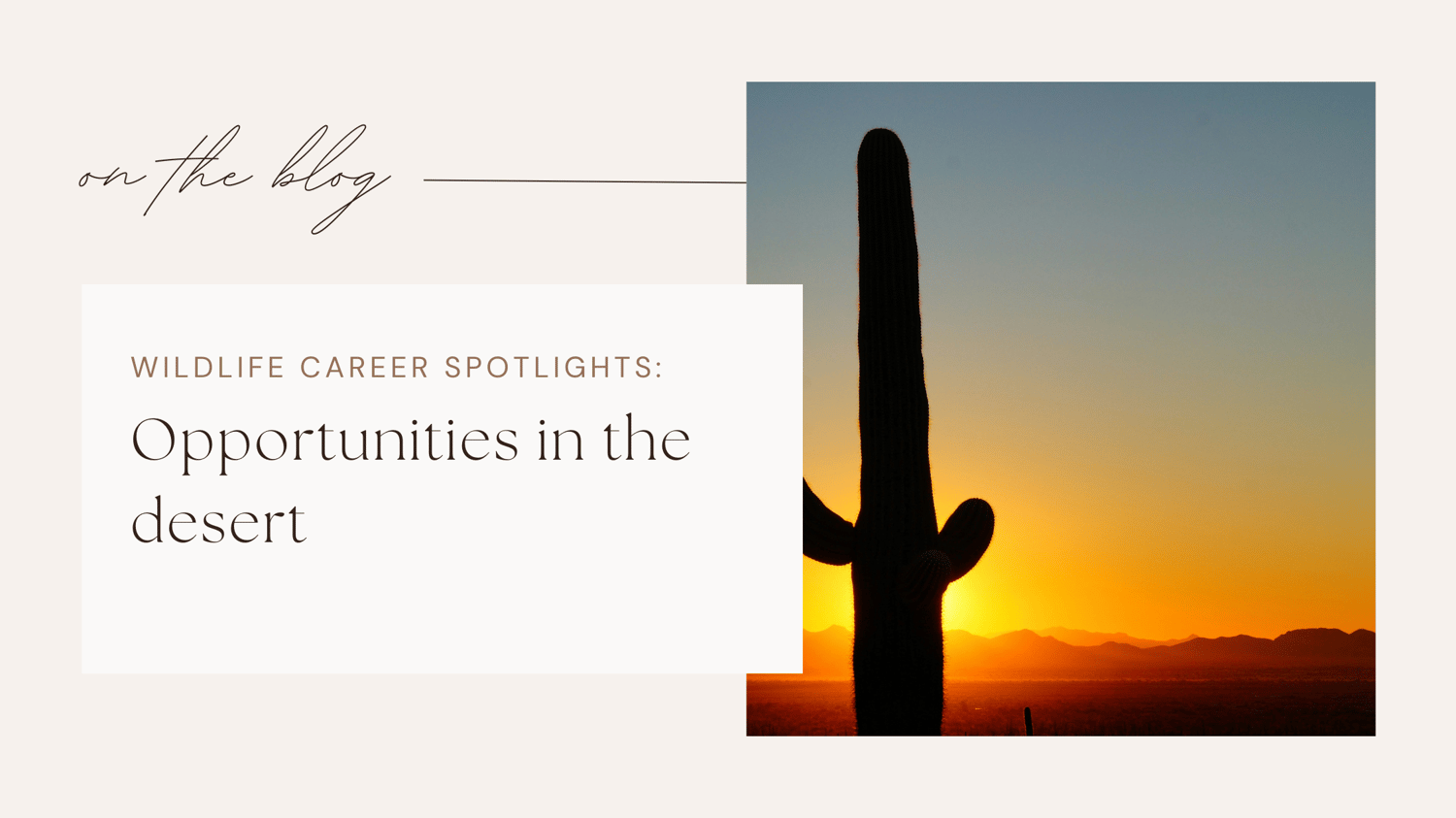Desert ecosystems, with their extreme conditions of heat, dryness, and limited water, are home to a fascinating array of wildlife uniquely adapted to survive in such environments. From the iconic dromedary camels of the Sahara to the elusive desert foxes and reptiles, these ecosystems offer a range of career opportunities for those passionate about conservation, wildlife research, and environmental protection. Despite their harsh conditions, deserts are crucial habitats, and understanding and preserving them is vital for maintaining biodiversity.
To explore more unique career options in the wildlife sector, take a look at our Wildlife Career Accelerator and Wildlife Work Directory.

[Credit Georg Baumann]
1. Desert Ecologist
Desert ecologists study the intricate relationships between organisms and their environments within desert ecosystems. These scientists focus on understanding how plants, animals, and microorganisms adapt to the extreme climate of the desert. They also examine how climate change, land development, and human activities impact these delicate ecosystems. Desert ecologists spend considerable time conducting field research, gathering data on species distributions, ecological processes, and habitat health. They may work for conservation organisations, universities, or government agencies, playing a key role in preserving desert biodiversity.
2. Wildlife Biologist
Wildlife biologists working in deserts focus on studying the behavior, physiology, and populations of desert species. From studying the migratory patterns of desert birds to monitoring the populations of endangered species like the desert tortoise or the Arabian oryx, wildlife biologists in these environments contribute to crucial research that informs conservation efforts. Biologists may also assess the health of desert ecosystems, tracking factors like water quality, food availability, and the impact of invasive species. Their work is essential for designing conservation plans and protecting vulnerable species.
3. Conservation Officer/ Ranger
Conservation officers or park rangers in desert regions are responsible for enforcing environmental laws and regulations in protected desert areas, such as national parks, wildlife reserves, and conservation areas. They patrol these regions to prevent poaching, illegal hunting, and habitat destruction, ensuring that the fragile ecosystems are maintained. In addition to law enforcement, conservation officers are often involved in public education, providing information on desert wildlife and the importance of conserving these ecosystems. They may also assist in wildlife rescue operations or participate in habitat restoration projects.
4. Desert Marine Biologist
Though deserts are often associated with dry land, some desert ecosystems, like those surrounding desert salt lakes or coastal desert regions (such as the Baja California Desert), contain rich marine life. Marine biologists working in these areas focus on studying the unique aquatic species adapted to life in brackish or salty water. These biologists may be involved in monitoring water quality, preserving fragile aquatic ecosystems, or studying the impact of climate change on desert aquatic environments.
5. Environmental Educator or Outreach Specialist
Environmental educators working in desert regions help raise awareness about the importance of desert ecosystems and wildlife. They often work with local communities, schools, and conservation groups to educate people about the desert environment, the species that live there, and how to conserve these habitats. These professionals may organize educational programs, guided tours, and community events to foster a greater understanding of desert ecosystems and promote sustainable practices.
6. Conservation Genetics Specialist
As desert species face pressures from climate change and human development, conservation genetics specialists are increasingly vital. These professionals study the genetic diversity of desert species, helping to assess the health and viability of populations. By studying genetic variation, they can identify potential risks to species survival, such as inbreeding or loss of genetic diversity. This work is crucial in managing captive breeding programs and protecting endangered species, as it helps inform conservation strategies and ensures that species have a sustainable future in their natural habitats.
Key Organisations in Desert Wildlife Conservation
Several organisations focus on the preservation of desert ecosystems and species, offering a range of career opportunities in research, fieldwork, and conservation:
- Desert Conservation Program (World Wildlife Fund): WWF’s Desert Conservation Program works to preserve desert habitats and species worldwide, focusing on sustainable land management, biodiversity conservation, and addressing climate change’s impact on desert ecosystems.
- The Desert Wildlife Conservancy: Based in the United States, this organization is dedicated to protecting desert wildlife and their habitats through conservation research, advocacy, and habitat restoration projects.
- International Society for Desert Ecology (ISDE): ISDE brings together researchers, educators, and conservationists focused on desert ecosystems. They support the study of desert biodiversity and promote sustainable conservation efforts.
Wildlife careers in desert ecosystems are both challenging and rewarding, offering opportunities for those interested in studying and conserving these unique environments. Whether as an ecologist, biologist, park ranger, or educator, professionals in the field of desert conservation play an essential role in preserving some of the world’s most resilient yet fragile ecosystems. As desert habitats continue to face threats from climate change and human activities, the demand for experts in desert wildlife conservation will remain high.



